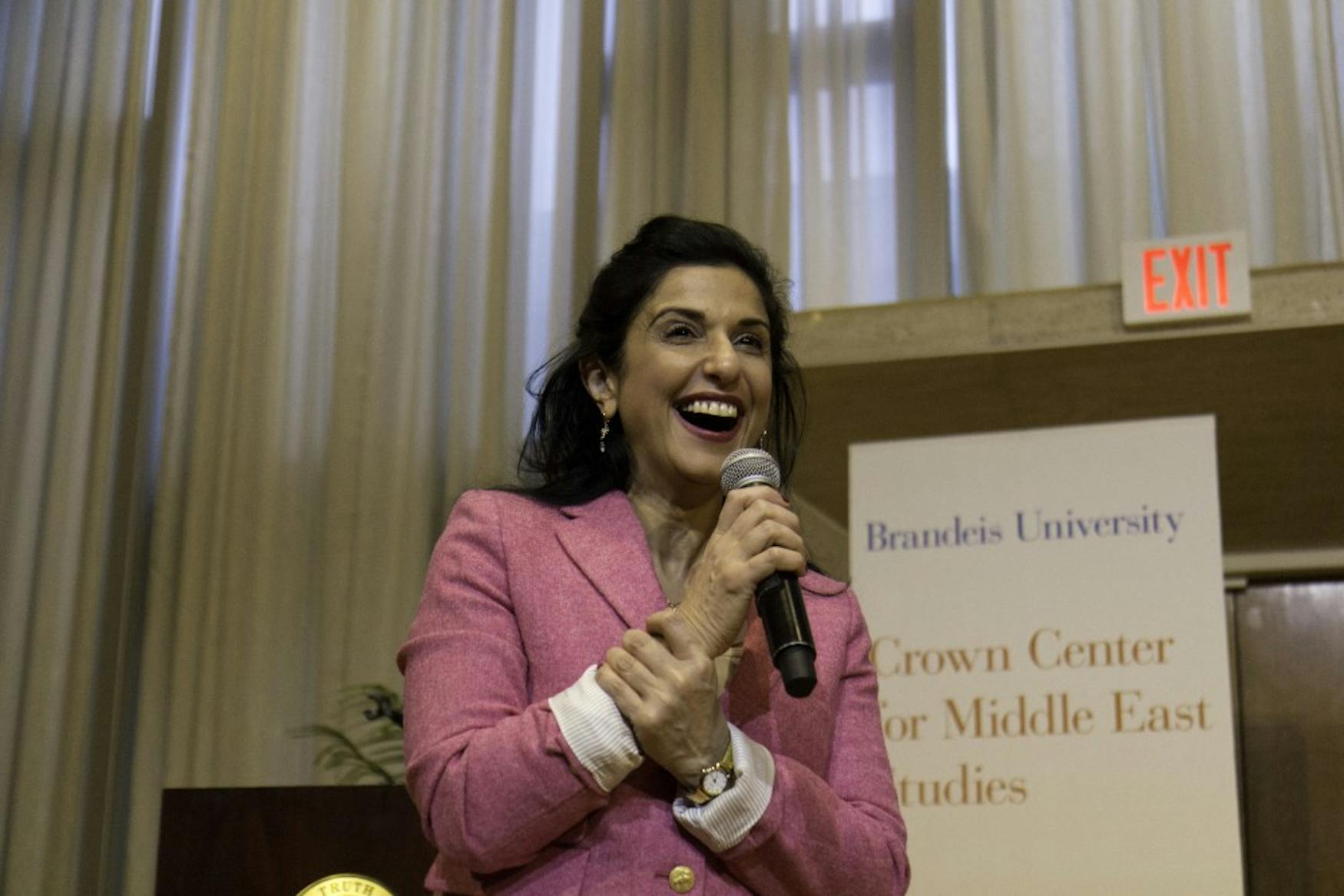Author discusses banned novel depicting a love story
Author Dorit Rabinyan’s “All the Rivers” was banned by the Israeli Ministry of Education for its love story between an Israeli woman and a Palestinian man. During her Wednesday lecture, Rabinyan chose to focus again and again on the need to establish a human connection with others, to bond.
Connection between Middle Easterners of various backgrounds became personally important to Rabinyan in 2002, during a winter she spent in New York. That winter, she met a group of Palestinian artists living in Brooklyn, and in the freezing temperatures, they became “much more … related to the ground that [they were] accustomed to.”
They had “grown up under the same sun,” and in New York, the joy of recognizing each other as fellow Middle Easterners overpowered the political divides they’d been raised under.
Rabinyan described herself as being the most religious of the group and explained that that experience was new to her. She enjoyed being teased and seen as the “primitive” one of the group by her secular friends. Rabinyan was aware that as an Israeli, she enjoyed freedoms denied to her Palestinian friends, and that it was necessary to have an equalizer.
“All the Rivers” is based on Rabinyan’s romance that winter, and she dedicated the book to her then-lover, Hassan Hourani. She said hearing Hassan’s perspective of their “contradictory, disputed, dual” piece of land showed her how fortunate she was to have a homeland and a passport to go back. She wrote the story after Hassan’s death, she said, to continue the dialogue they had in New York.
“All the Rivers” was originally titled “A Rescue Act,” and Rabinyan explained that writing the book was her way of bringing Hassan back to life. She first wrote it in Hebrew and said that she sees Hebrew as a language that gave her liberty and privilege but has caused Hassan’s Palestinian family difficulties. Resurrecting him in Hebrew felt like correcting that, she said. Rabinyan has been told by Palestinian readers that Hilmi, Hassan’s character, is just like them. To Rabinyan, that’s the best compliment an Israeli writer can get.
Rabinyan’s focus on dual Israeli and Palestinian narratives emerged again during the Q&A session. When asked if “All the Rivers” was available in Arabic, she said that it isn’t but told a story about two letters she received about the book from people who lived only six miles apart. One was a student at a Palestinian university who had to hide the book because “those Zionist fingers [had] written it,” and the other lived in a Jewish settlement and hid the book because it was too left-wing. Both authors cited the same passage and said they were impacted by “the love for humanity. They felt they could cross . . . their own immediate loyalty,” Rabinyan said.
When asked, Rabinyan explained the Ministry of Education’s reason for banning the book from Israeli high schools: “[It] is dangerous to the Jewish identity of the young readers in Israel because they might be encouraged to get involved with the non-Jewish residents of the country and that might encourage them to assimilation.”
Rabinyan said she felt overwhelmed by the Ministry’s decision, because the book was specifically about fear of love and intimacy between Israelis and their neighbors. “This personal fear of love can be read as a communal fear of peace, … of harmonious Jewish life in this region with [these] neighbors,” she said. “You cannot live with no boundaries and keep your identity separate.”
Rabinyan believes that the book wasn’t actually banned because of the fear of assimilation, but rather because it describes Palestinians as people. She criticized the government for trying to convince millennials and high-schoolers that Palestinians are demons and not people. Her book, she said, gives them a face.



Please note All comments are eligible for publication in The Justice.